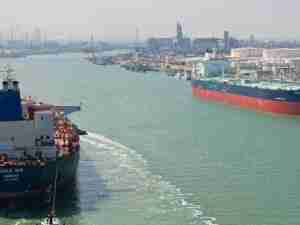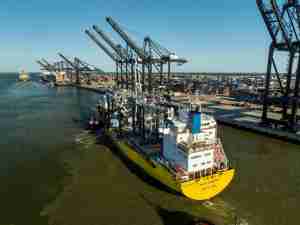Union representatives were meeting with congressmen to persuade them to vote against parts of the bill that shift key management responsibilities to the central government and away from the port authorities, threatening jobs.
They also want to defeat proposals to allow new terminals to recruit their own labor, ending an obligation to source workers through a centralized agency that doles out available shifts. The proposals would cut wages and legal safeguards, unions say.
"If we're not successful, without doubt there will be a strike. Regardless of whether it hurts the trade balance, we want to avoid losses and setbacks for workers in the future," said Everandy Cirino dos Santos, head of the Sindaport union.
Even without strike action, those in the industry expect a chaotic year at Brazil's overburdened ports, particularly Santos and Paranagua in the southeast, with soy exports set to soar from a bumper harvest. Years of underinvestment mean port capacity has failed to keep up with the needs of the country's thriving farming sector.
Even a fairly short strike could worsen delays that are seen getting longer for ship loading, pushing up shipper costs and potentially nudging up the spot price of key Brazilian commodities like soy and sugar.
Dos Santos said the unions will hold plenary meetings after a congressional vote on the proposed ports law, expected within days, to make a final decision on strike action. A stoppage could last a day or two or continue indefinitely, he said.
The unions lobbying in Brasilia on Wednesday represent stevedores or longshoremen and workers at the individual ports'management authorities.
Proposals to replace a 20-year-old regulatory framework for ports were drawn up by the government to attract private investment as part of a 54 billion reais ($27 billion) public-private overhaul of docks announced in December. (Reuters)










